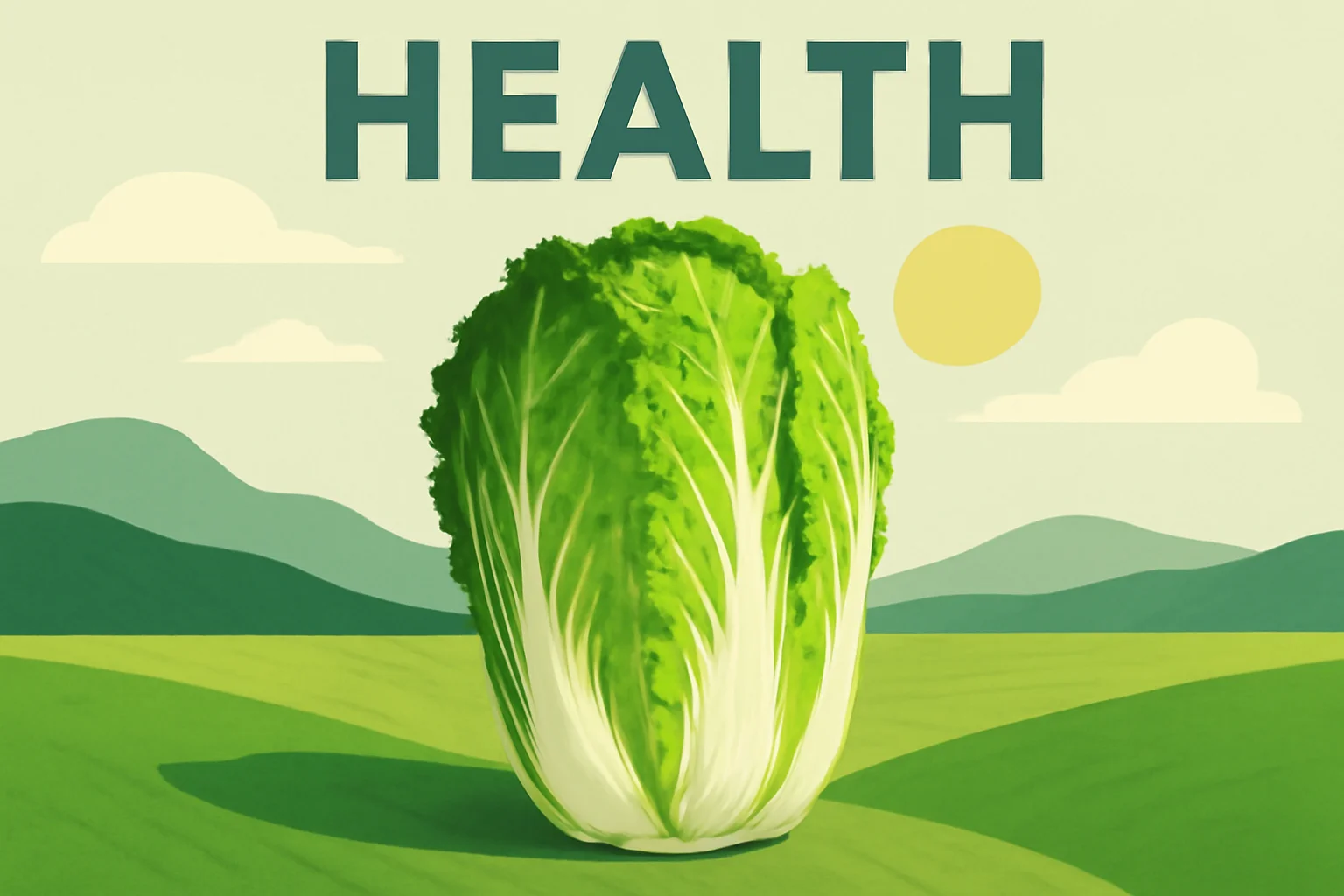
The Beneficial Effects of Napa Cabbage on Our Health
The napa cabbage, also known as Chinese cabbage, has become increasingly popular in health-conscious diets in recent years. Due to its rich nutrient content and versatile uses, many have discovered its beneficial effects. Napa cabbage is not only delicious and refreshing but also offers numerous health benefits that can enhance our everyday diet. It belongs to the cabbage family and is particularly rich in vitamins, minerals, and fiber, making it an excellent choice for those following vegan and vegetarian diets.
The taste of napa cabbage is slightly sweet, and its crunchy texture provides a unique experience for consumers. It is widely used in Asian cuisine but is also making its way into more European recipes. Napa cabbage is not only nutritious but can also help prevent and manage various health issues. The antioxidants and anti-inflammatory compounds found in this vegetable can assist in maintaining the body’s defenses while supporting digestion and gut health.
More and more people are recognizing the beneficial effects of napa cabbage, and it can be found in an increasing number of places. Below, we will provide a more detailed overview of the advantages of napa cabbage, further inspiring our readers to incorporate this wonderful vegetable into their daily diets.
The Nutritional Content of Napa Cabbage
Napa cabbage boasts an outstanding nutritional profile that comes with numerous health benefits. It is rich in vitamins such as vitamin C, vitamin K, folate, and B vitamins, as well as minerals like calcium, potassium, and magnesium. Vitamin C has antioxidant properties that help neutralize free radicals, contributing to the maintenance of cell health and the prevention of chronic diseases.
The vitamin K content in napa cabbage is particularly noteworthy, as this vitamin plays a crucial role in blood clotting and maintaining bone health. Folate is especially beneficial for pregnant women, as it aids in fetal development and reduces the risk of birth defects.
Additionally, napa cabbage is high in fiber, which positively affects the digestive system. Fiber aids in bowel movements, promotes nutrient absorption, and contributes to gut health. Regular fiber consumption can reduce the risk of constipation, irritable bowel syndrome, and other digestive issues.
Napa cabbage is a low-calorie vegetable, making it an ideal choice for those looking to lose weight. Its high water content helps maintain hydration while providing a sense of fullness. Thanks to its nutrient content, napa cabbage is not only nourishing but also a delicious and versatile ingredient.
Napa Cabbage and Immune System Support
The proper functioning of the immune system is essential for maintaining health. Consuming napa cabbage can contribute to strengthening the immune system, thanks to its high vitamin C and antioxidant content. Vitamin C helps in the production of white blood cells, which play a key role in the body’s immune response.
Antioxidants, such as flavonoids and carotenoids, also contribute to enhancing the immune response. These compounds help reduce inflammation in the body and protect cells from damage caused by free radicals. Regular consumption of napa cabbage can thus help prevent colds and other viral infections.
Furthermore, napa cabbage has a positive impact on gut health. A healthy gut flora contributes to the functioning of the immune system, as beneficial bacteria in the gut help suppress pathogens and reduce inflammation. The fiber content in napa cabbage supports gut health, thereby indirectly strengthening the immune system.
In addition, consuming napa cabbage can help reduce stress. Stress can negatively affect immune system functioning, so a proper diet and a vitamin-rich diet can aid in stress management, improving overall health.
Napa Cabbage and Cardiovascular Health
Regular consumption of napa cabbage can have beneficial effects on cardiovascular health. The antioxidants and anti-inflammatory compounds it contains contribute to reducing the risk of heart disease. Cabbage is rich in potassium, which helps regulate blood pressure, thus protecting heart health.
The fiber content in napa cabbage also plays an important role in cardiovascular health. Fiber helps lower cholesterol levels, thereby reducing the risk of heart disease. Regular fiber consumption contributes to stabilizing blood sugar levels, which is also important for maintaining heart health.
Moreover, the low calorie and high water content of napa cabbage helps in weight management, which is also crucial for maintaining cardiovascular health. Achieving and maintaining a healthy weight can reduce the risk of heart disease and other chronic conditions.
Due to its flavor and versatility, napa cabbage can easily be incorporated into everyday meals, whether in salads, soups, or main dishes. By consuming it regularly, we can not only support our cardiovascular health but also contribute to improving our overall well-being.
How to Consume Napa Cabbage?
The versatility of napa cabbage allows it to be consumed in various ways. It can appear on the table in fresh salads, soups, stir-fry dishes, or even as a pickle. With a wide range of preparation methods, we can easily incorporate it into our daily diet.
Using napa cabbage in salads is particularly popular. The thinly sliced napa cabbage adds a fresh and crunchy texture to salads while enriching the dish with vitamins and minerals. Combined with various dressings and other vegetables, it can create a delicious and nutritious meal.
Its use in soups is also favored. Napa cabbage cooks quickly and adds a delightful flavor to soups. It can be included in Chinese soups or even a simple vegetable soup, thus enhancing the dish’s nutritional content.
Using it in stir-fry dishes is also popular, as they can be prepared quickly and are extremely tasty. Napa cabbage pairs well with various meats and other vegetables, allowing for a nutritious and delicious meal.
Preparing it as a pickle is also common, especially in Asian cuisines. Pickled napa cabbage adds a rich flavor to dishes and increases the intake of probiotics, which positively affects gut flora.
Due to its versatility and nutritious components, napa cabbage is worth incorporating into our daily diets, as it is not only delicious but also beneficial for our health.
Note: This article does not constitute medical advice. In case of health problems, everyone should follow their doctor’s advice.

